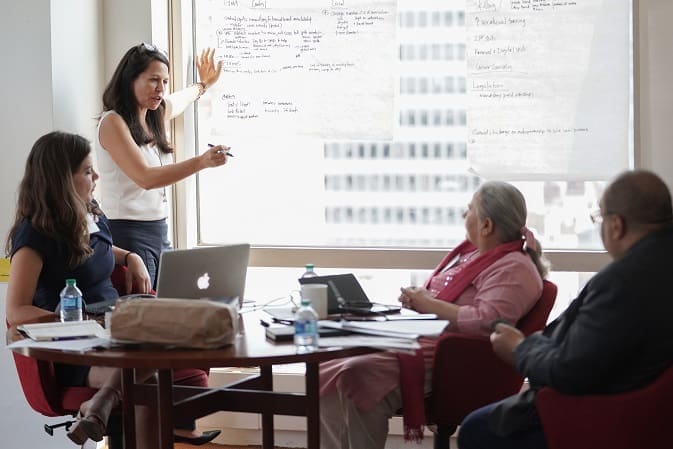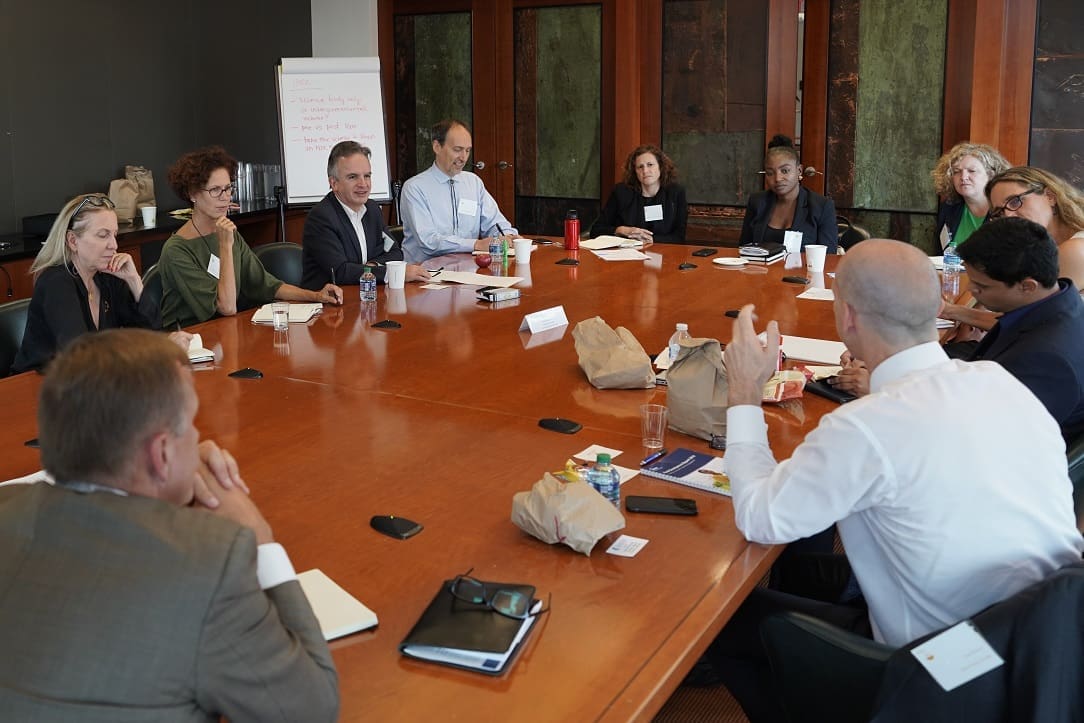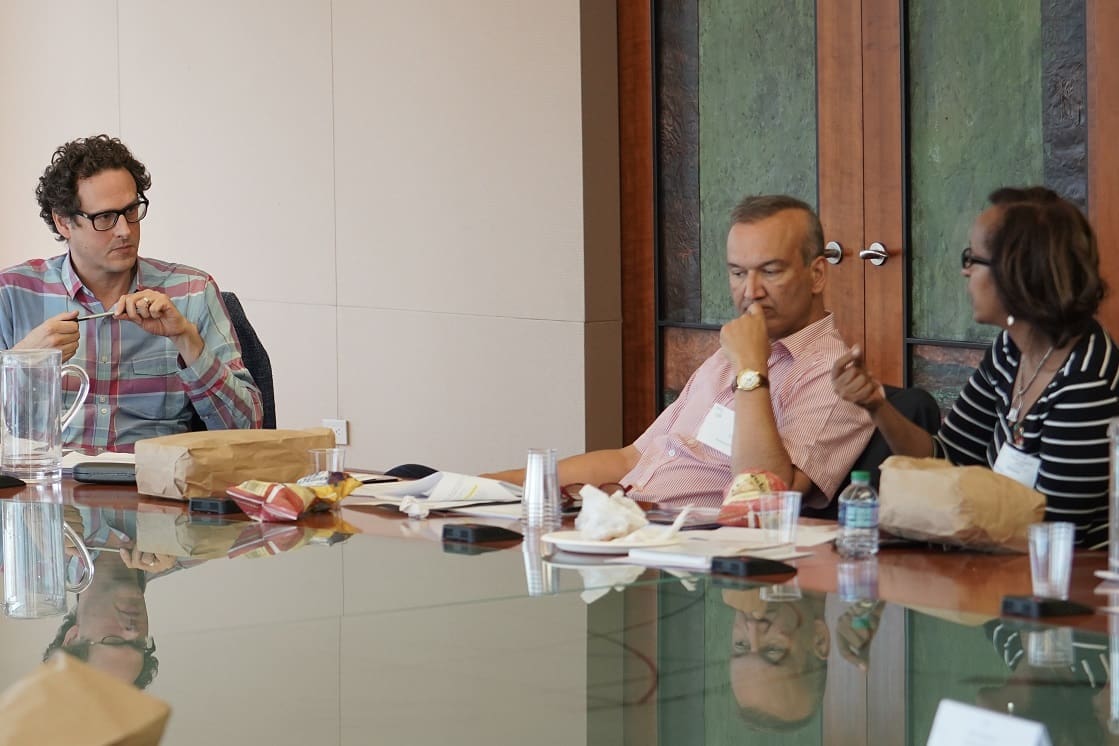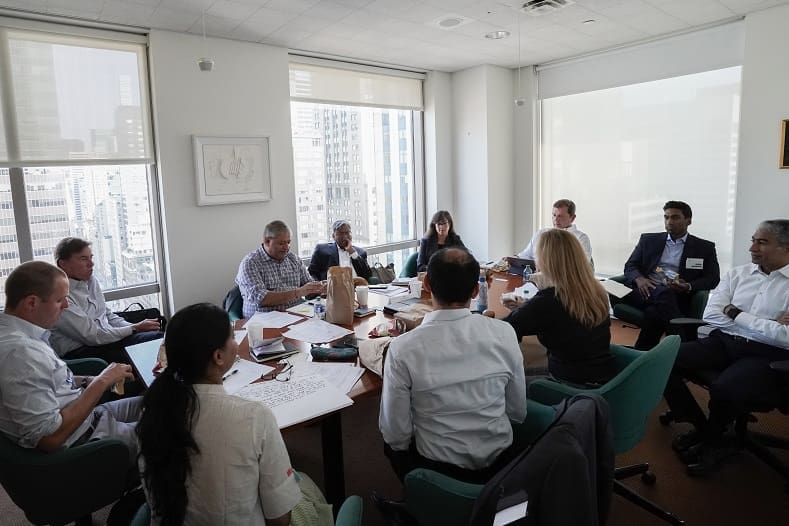
The Rockefeller Foundation will host more than 30 events over six days to engage partners and spur action on the global Sustainable Development Goals (SDGs), against the backdrop of the 74th session of the United Nations General Assembly (UNGA).
While some complain about the traffic congestion in midtown New York, or deride the gathering as simply a “talk shop,” if you dig a little deeper, this can be a week of great progress and purpose.
The Rockefeller Foundation team has approached this week with a sense optimism about what our global community can – and must – achieve to reduce poverty, improve health for millions of people around the world, and address climate change.
Yesterday, we hosted our second annual “17 Rooms” convening, which brought together 200 leaders across philanthropy, government, civil society, academia and business to develop new ideas and collaborations to advance the SDGs and measure progress.
Watching this group break into teams and develop concrete, innovative ideas to drive solutions on issues like health and climate change was inspirational. In Room 14, “Life Below Water,” the group recommended a ban on bottom trawling and putting an end to subsidies that perpetuate overfishing. In Room 4, “Quality Education,” the group recommended launching a prize for the country that has most successfully incorporated innovation into their education system to create lifelong learners. In Room 5, “Gender Equality,” the group recommended a business certification focused on pay equity and representation. Dozens of new ideas emerged.
Within these 17 Rooms, leaders from grassroots organizations and environmental organizations worked alongside CEOs of global companies not just to highlight problems, but to actually develop solutions. This type of leadership and collective action is what’s required to ensure no person suffers the indignity of living in subsistence poverty.
We also held a special gathering on behalf of a Foundation grantee, Dr. Denis Mukwege, a world-renowned gynecologist and Nobel Peace Prize laureate. Dr. Mukwege directs the Panzi Hospital in the Democratic Republic of Congo – a haven for women who have been victims of violent sexual assault. His work has earned him praise for his global campaign against the use of rape as a weapon of war. Dr. Mukwege’s courageous commitment reminds us of the moral leadership required to make the world more just for the people who have been victims of unspeakable violence.
We need to recommit to the SDGs and bring a renewed sense of urgency to the effort of building a world in which everyone can be hopeful about the future.
The Rockefeller Foundation also hosted former UN Secretary-General Ban Ki-Moon and dozens of university presidents from around the world to launch the University Global Compact, a global platform of universities committed to helping achieve the SDGs. Given the incredible uprising of young people last week, with more than 4 million people in 160 countries taking to the streets to demand climate action, we are proud to have brought together universities to support the leadership of the younger generation to achieve these global goals.
The SDGs cannot be achieved by anyone working alone. We need to recommit to the SDGs and bring a renewed sense of urgency to the effort of building a world in which everyone can be hopeful about the future. We need to transform our economies to include women and those who are left behind, as we make a transition away from carbon to a more sustainable economy. Achieving these major transformations at a time when our politics are broken and trust in institutions is at an all-time low requires all of us to take on more responsibility to lead.
I was inspired by the hundreds of people who participated in yesterday’s events and energized by their commitment to take action on the SDGs. I am optimistic about the weeks, months and years ahead and look forward to reporting on our efforts this week.
Onwards,
Raj




Leave a comment